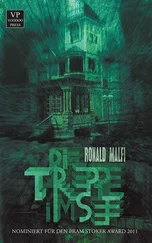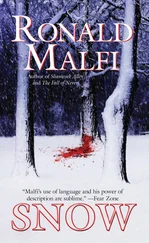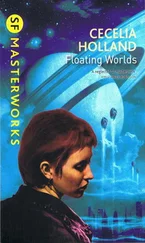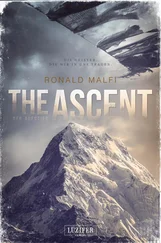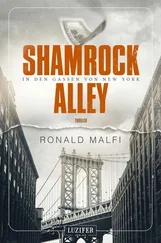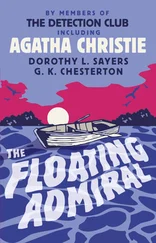Inevitably, my mind returned to Jodie. I was you. My interest in the Dentmans had frightened her badly enough to send her across the street to my brother’s house. I hated myself for it.
Can’t I just forget the whole thing? Can’t I throw in the towel on this murder-mystery fiasco? Call the haulers to come get Elijah’s stuff out of the basement and burn my goddamn writing notebooks? Can’t I just shake this thing and let Jodie and me move on with our lives?
But I didn’t think I could do it. Moreover, I didn’t think I was supposed to do it.
When I reached the outskirts of Westlake, I eased behind a small queue of cars at a traffic light. Leaning over, I popped open the glove compartment and rooted around until I found a pen and a curl of paper, which was actually an old Office Depot receipt. On the back of the receipt I wrote, It has been said that nature does not know extinction, knowing that it would make the perfect opening line for my Floating Staircase novel if I ever actually finished it.
The light changed, and the driver behind me laid on the horn.
Nervous and jittery, I felt like a bullet shot from a gun. I was on the verge of revealing some great and hidden truth—I knew this without question, though I had no concept of how I knew—and I floored the accelerator the rest of the way home.
The house was a dark shell. Warmer temperatures had caused the snow to start its retreat, and I could see the grayish lawn at the edge of our property. I drove up the gravel driveway as evergreens rushed in on either side of the car. Some small part of me was holding out hope that Jodie would be home, but the realistic part of me knew that wouldn’t be the case. She was hard-headed; she would stick to her guns.
Climbing out of the car, I stood staring at the house as if it had just appeared in front of me out of thin air. The front porch slouched under the weight of melting snow. The windows looked pebbly with grit.
I am not willing to lose my marriage over this bullshit, I thought. I’d already decided that I would call the junk haulers tomorrow to get Elijah’s stuff out of our basement. Then I would go over to Adam’s house and see Jodie.
I walked to the rear of the house and wended through the naked trees on my way to the lake. The neighboring pines whispered their conspiracies all around me. I paused as the lake came into clear view. Much of it was now unfrozen, save for a Texas-shaped panel at the lake’s center. It was the first time I’d actually seen the water. The lake trembled in the moonlight.
Find an anchor, the therapist piped up.
“Shut the fuck up,” I told the voice, turning and walking back to the house.
Inside, it was cold as hell. Darkness pressed against the windows. I turned on very few lights. From the basement I retrieved Earl’s crime scene photos. I stuck them to the refrigerator with magnets, sat on the floor, and studied them, my back against one kitchen wall and a plate of cold chicken in my lap. I was missing something in those photos, something important, but it remained elusive.
Find an anchor.
There was one last thing I could do; oddly enough, it had been something my brother had said to me the other day while I was chopping firewood in the backyard. Murderers have motives, innocent people have alibis, and you can’t lock someone up behind bars because pieces don’t fit. I grabbed the telephone and punched in Earl’s number. It rang a number of times before his sleep-heavy voice growled a rough hello into the receiver.
“Sorry to wake you,” I said. “It’s Travis.”
“Shoot,” he garbled, “I was awake. What’s the news on Althea?”
“She’s a sweet old woman who’s dying a painful death. I felt horrible for her.”
“What did she say about the Dentmans?”
I relayed to him the story of Elijah’s mysterious two-day illness and the boy’s response that he “went away” for those two days. I told him, too, of the dead animals the boy had been collecting and how Uncle David did not approve of such behavior. “Just how much he didn’t approve,” I appended, “is the million-dollar question.”
“Did you tell her your theory? About David having murdered the boy?” There was a youthful exuberance that ran through the old man’s voice.
“The only solid thing I was able to get from her was that they were a bizarre family. She knew nothing definitive.”
“Well, have we reached an impasse?”
I was still studying those photographs on the refrigerator. “Not quite. I guess there’s one more thing you could do for me, but I’ll be honest—I feel like a heel asking you to do this.”
“Nonsense.”
“I just don’t want you getting into any trouble.”
“I’m a big boy. Why don’t you tell me your little plan, and I’ll decide for m’self just how much trouble I’m lookin’ at.”
So I told him my plan. “Don’t use your real name,” I warned him. “If you can’t think of one on the spot, give them my name. I don’t want you getting jammed up in all this.”
“Hell,” he cooed, then whistled. “You’ve got one hell of a sneaky streak in you, son, don’t you?”
“I’m not holding out much hope on this. In fact, I’m not quite sure what you’ll find or even what it’ll prove until I see it in front of me.”
“I’ll get on it first thing tomorrow,” Earl promised. In the background I could hear one of his dogs whining. I thought of the monstrous wolfhound guarding the credenza in Earl’s tiny double-wide.
“Just be careful,” I said and hung up the phone.
Around eight o’clock I fixed myself a peanut butter and jelly sandwich and a pot of coffee. Carrying the stack of crime scene photos, I sank back into the basement.
I am missing something.
Something important.
The basement was charred, sooty darkness, blank as tar paper. The bulb in the ceiling was dead, and I couldn’t find any replacements. Instead, I located a flashlight and cast its beam into Elijah’s hidden room behind the wall. On the desk, someone had constructed a staircase out of the colored wooden blocks. Holding a coffee mug in one hand and with the eight-by-tens tucked under my arm, I just stared at those blocks, spotlighted in the beam of my flashlight. The coffee burned all the way down to my toes with each sip. Thing about coffee, I thought, is that it forgives you no matter what.
I sat down at Elijah’s writing desk, clicking on the small lamp in one corner. For a while I studied the photographs in my lap. Drank coffee. I ignored the blocks until I could ignore them no longer. One block at a time, I picked them apart Jenga-style, until the structure lost all semblance of form and function. It turned into nonsense. There.
I slid one of my notebooks in front of me, turned to a clean page, and began to write. I wrote as my mouth started to bleed onto the page and then onto my shirt. Bringing a hand up to my lips, my fingers came away smeared with blood. It occurred to me that I’d been chewing on the back of my pencil and hadn’t even felt one of the splinters jab my lower lip. Had I swallowed any without knowing? I imagined a thousand shavings of wood sizzling in the feverish acid of my stomach.
Then I looked at the photograph of the lake. Then down at the page where my spidery handwriting leaned and spiked like waves. Then back down at the photo. I thought, Sometimes we go in; sometimes we go out. And I thought, Something doesn’t add up here.
I focused on the photo of haunted Veronica Dentman standing among the trees. Empty. Blinded. Terrorized. Already dead. Already dead, I thought. I flipped to another photo, this one of a group of police officers trudging through the trees toward the house. A number of them had turned to catch the photographer just as he snapped the picture, their faces blurred from the movement and as indistinct as the faces of passengers glimpsed in the windows of a passing train.
Читать дальше


